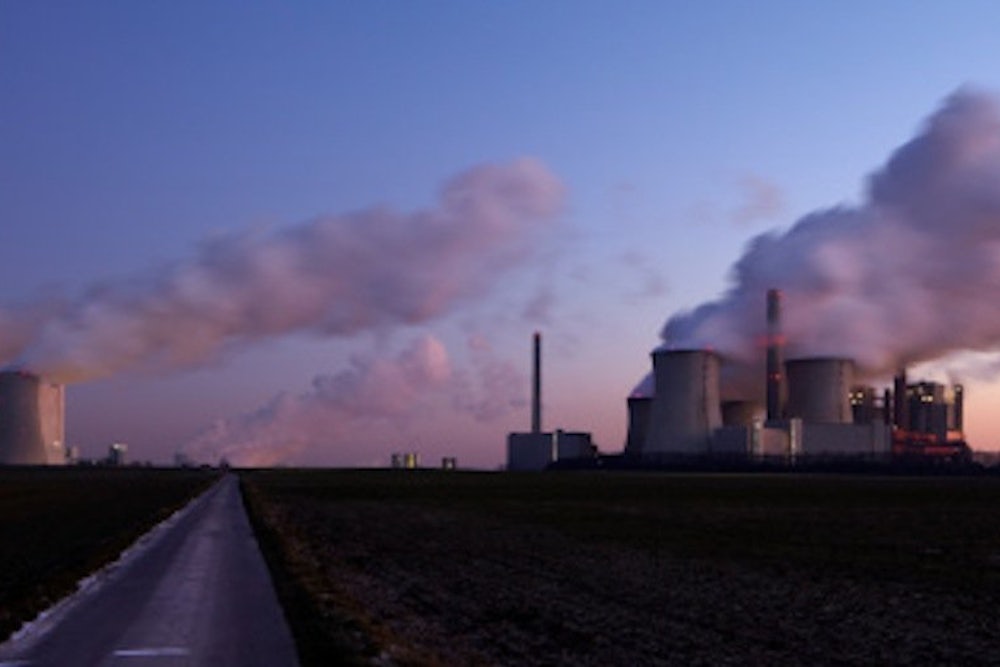If you were hoping for any one issue to dominate the political conversation this week, then your timing was off. Yesterday, the Supreme Court ruled on affirmative action; today, it ruled on the Voting Rights Act. Last night, a border security bill that paves the way for immigration reform received 67 votes in the Senate. Edward Snowden has gone off the radar somewhere in Moscow. Still, the Supreme Court could rule on gay marriage, and there’s a special election tonight in Massachusetts. In that context, it seems telling that the White House decided to announce a big series of new climate change policies today. It’s also understandable: The climate is one of the GOP’s better issues, in terms of messaging. But it’s probably not an electoral disaster for Democrats, either.
Climate change isn’t a great issue for Democrats because voters just aren’t very concerned about it. According to Pew Research, climate change was the lowest priority issue for this year. It ranked 21st out of 21 choices, beneath strengthening the world’s strongest military, reducing crime beneath relatively low levels, and improving infrastructure, which doesn’t exactly capture the public imagination. Scientists and the public just aren’t on the same page: Just 42 percent think global warming is caused by humans, and only 45 percent say scientists think that the Earth is getting warmer because of human activity. Only 40 percent think climate change is a major threat.
From here, it’s easy to argue that President Obama’s new climate initiative will hurt Democrats in 2014. Republicans can argue that measures to reduce carbon emissions will hurt economic growth and force consumers to pay higher energy prices. That’s a decent message during a period of weak growth, and it’s an especially good message compared to the GOP’s unpopular opposition to background checks on gun purchases or a pathway to citizenship. Not only is climate a rare pocket-book issue that can help Republicans, but plenty of Senate Democrats are up for reelection in red, energy producing states, like Louisiana and Alaska. And a renewed discussion of climate change certainly won’t help Democrats running in “coal country,” as Politico points out.
But the electoral consequences of Obama’s climate policy will probably be overstated. That’s not because climate policy doesn’t have big electoral consequences, but mainly because Democrats have already incurred the huge, if localized costs of pursuing regulations on carbon emissions.
The 2009-2010 era fights over Cap and Trade and EPA regulations on new power plants solidified Democrats as the party of the so-called “war on coal,” which resulted in cataclysmic Democratic losses in traditionally Democratic stretches of eastern Kentucky, West Virginia, western Pennsylvania, and western Virginia. Maybe memories of the “war on coal” would have faded without the president’s newest climate push, allowing Democrats to recover in 2014. That’s possible, but unlikely. After all, Republicans were already favored to takeover West Virginia’s open Senate seat.1
It’s still harder to argue that Obama’s policy will matter outside of West Virginia or Kentucky. In 2010 and 2012, the “war on coal” didn’t resonate outside of coal country, not even in other energy producing states or areas where electricity is generated from coal fired power plants. Obama, for instance, did even better in Alaska or Louisiana than he did in 2008. Of course, even if Obama’s new policies did prove to be wildly unpopular, red state Democrats like Landrieu or Begich would probably just oppose them. Such opposition would be relatively painless, since these measures will take effect through executive action and don't require congressional approval. Opposing the president’s policy won’t completely inoculate Senators from the cost of the “D” next to their name, but it’s worth remembering that Senator Joe Manchin was spared the coal revolt after proving his coal credentials by shooting the Cap and Trade bill with a rifle.
Climate change could eventually put Democrats in a tough spot, since it threatens to divide the party’s populists from liberals or environmentalists. But so far, the public isn’t reflexively opposed to policies to reduce carbon emissions. The same Pew Research survey found that 62 percent favored emissions limits on power plants to address climate change. Of course, the poll can’t predict how the public will feel after both sides have introduced their arguments. But given that the most controversial regulations don’t require congressional approval, Republicans might not get the prolonged public debate necessary to make their case. Especially since Obama’s policies will be announced during a very busy week.
And even if West Virginians were poised to forget about the “war on coal,” the GOP’s strong nominee, Shelly Moore Capito, would probably still be favored.
